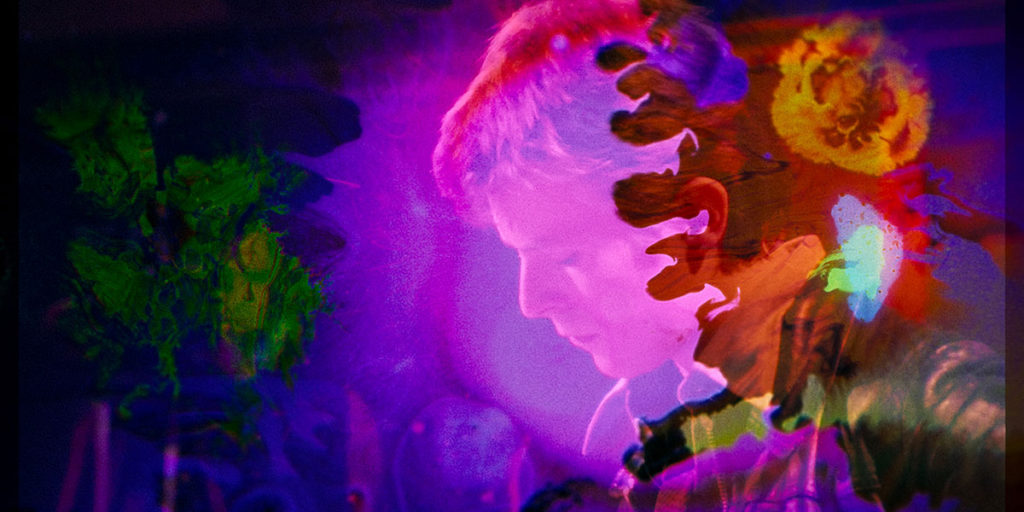All the Beauty and the Bloodshed (2022 | USA | 117 minutes | Laura Poitras)
Although Laura Poitras’s All The Beauty and the Bloodshed puts decades of Nan Goldin’s photography onto the big screen, neither the film nor its subject are stuck in the past.
Goldin’s pioneering slideshows, which captured the lived experiences of marginalized people in her social milieu of the early 1970s with vibrant candor, provide a loose structure for the film. Having left home in her early teens in the wake of her sister’s suicide, Nan found a her voice with a camera and forged her identity among the city’s queer communities. Had the film done nothing more than bring this slice of art history to a new audience, it would have been a success. Goldin broke into an art world where photography was largely staid vertical black and white images, in an era where not everyone had the machinery of self-constructed imagery and self-promotion in their pockets. From the present vantage of an internet saturated with carefully curated identity as currency of the realm, her depiction of youth culture — especially the interrogation of so-called sexual depravity — shot and curated in collaboration with her subjects was in and of itself a revolutionary angle.
Along with these photographs and retrospectives, Poitras interweaves audio from over a year of deep conversations with Goldin. She reflects on the difference between stories we tell and the tactile nature of memory, how one is clean and the other has smells and lasting effects. There are frank discussions of mental health and familial insufficiency, of artistic awakenings, and the friendships and loves that sustained her life. Again, had this been the whole film, it would have been sufficient.
But stasis or pure reflection is not how either Poitras or Goldin have ever worked. The film takes flight in cementing the interconnections between Goldin’s life, her willingness to stand for artistic freedom during the AIDS crisis, the lessons of effecting impolite change as part of the ACT-UP movement in the face of indifference to mass deaths as the foundation of her present day activism amid the deadly opioid epidemic. Grounded in her personal experience with addiction to prescription painkillers after a surgery, she and her PAIN organization have taken stands against the “artwashing” that the Sackler family has done through donations to major art institutions to blunt their complicity in creating the opioid crisis through Purdue Pharma’s deceitful marketing of their blockbuster drug OxyContin. Leading “die-ins” performances with pill bottles, prescription pads, and banners at places like the Met, Guggenheim, and LouvreGoldin leverages her art-world credibility (she’s in the permanent collection of each) to protest the continued use of this family’s name in high-society despite the hundreds of thousands of addiction related deaths stemming from their products.
The masterful linking of today’s activism, spanning protest, lawsuits, legislation, and devastating testimony with the artist’s own complicated biography makes for a stunning continuum of creativity, personal revelation, and vital social change. One of the most vibrant documentaries of the season and a shot at a second Oscar for Poitras (who just brought home the Golden Lion from Venice).

Moonage Daydream (2022 | USA | 134 minutes | Brett Morgen)
Who was David Bowie? Don’t ask Brett Morgen. Neither concert film or a documentary, his Moonage Daydream doesn’t exactly seek to answer such a basic yet profound questions. Instead, he weaves together clips from other people’s interviews, recordings of live performances, fragments from Bowie’s work in movies, and manic snippets from otherwise unrelated film history to conjure a series of mood boards and approximate synesthesia. Like the life of the polymath icon whom he casts in terms of an otherworldly philosopher king, for better or worse, I began to believe that his two-and-a-quarter hour multimodal montage might never end.
Morgen’s documentaries are a bit of a conundrum. He plunges into mountains of other people’s footage and other interviewers’ questions and attempts to find something new about the person, or to at least transmute these artifacts of a life into a metamorphic organism, capable of induing a mood if not an understanding. We see Bowie the young bisexual rocker, almost clownishly made-up if he wasn’t taking it all so seriously, bursting onto the scene and shocking earnest talk show hosts. We also see an older Bowie in a dance piece, creating visual art, conducting symphonies, wandering around southeast Asia in an art film. There’s another one, born into boringness, tastes inspired by an oft-absent older step-brother, aging and embracing the introverted impulse to solitary creativity, dismissing the idea of up-close love as a distraction from art. And yet, he’s also a perpetual performer, a visitor from outer space actively attempting to will the twenty-first century into existence from the vantage of 1971. Morgen has all of these Bowies coexisting, the one who forced himself to live in a Los Angeles he loathed, the one who escaped to Berlin to invent new grammars of sound with Brian Eno, and the one who decided to embrace popularity by playing sold out arena tours and hawking Pepsi.
All are juxtaposed and united through a parade of his greatest hits. Sometimes the focus is on the stage, his odd yet compelling presence; other times we’re gifted the vantage of fans in all their splendor arriving at a show. Much of it is spectacular, some becomes frustratingly unmoored. I saw it at the flagship IMAX, a Cinesphere on the water, an illuminated orb whose lights pierced the misty evening, a taxi ride away from the fray of TIFF’s King Street’s crowds. It’s more than likely that the film’s late start at a late hour of an already long day tried my patience, but the giant scale of the images and immense embrace of the audio production are simply undeniable.
All the Beauty and the Bloodshed (Participant) and Moonage Daydream (NEON/Universal) had their North American premieres at the Toronto International Film Festival; both are scheduled for release later this year. Images courtesy TIFF.




